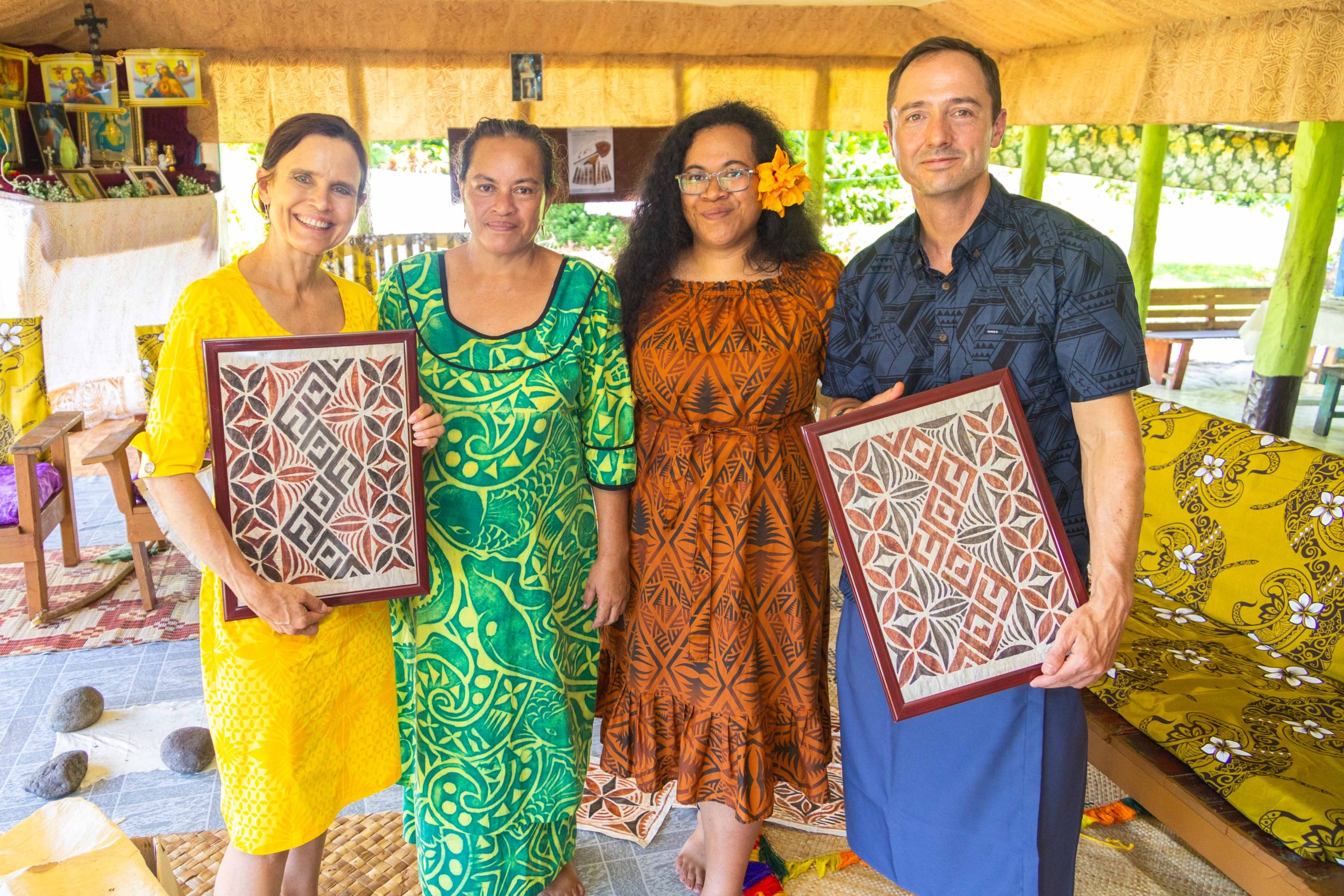In the village of Palauli in Savaii, siapo thrives under the hands of Ms Tusiata Lemuelu and her family.
The siapo making process was passed down by Tusiata’s grandmother, Faamuli Salu, to her mother,
Faapito, and now to Tusiata and her siblings. "My grandmother, the mastermind behind our siapo,
taught us the importance of carrying forward our traditions," Tusiata says.
More than an artform, siapo is a lifeline for Tusiata’s family. Running siapo demonstrations as a
small business in Savaii has become their main source of income. “It puts food on the table and
covers expenses for the family, village, and churches – but importantly, putting us children through
school,” says Tusiata.
The process of making siapo is long and hard according to Tusiata. It starts with the careful selection
and harvesting of the 'u'a (paper mulberry tree). The bark is then stripped, soaked, and beaten into
thin, workable sheets. These sheets are then sun-dried and mended before artistically adorned with
natural dyes to create the distinctive and vibrant designs of the siapo.
Tusiata emphasized how their small business also contributes to the economic prosperity of their
community. “We engage other families by providing them with 'u'a plants to grow, which we then
purchase for our siapo. This practice ensures the sustainability of our craft and supports the
community economically,” Tusiata explained.
Embracing modernity, Tusiata expanded their reach through social media, connecting their
traditional craft with a global audience. "Since posting our siapo on Facebook, we've received orders
from all over, showcasing our tradition to the world and educating the younger generation on its
value she says.
Australia’s Ambassador for Gender Equality, Ms. Stephanie Copus-Campbell, visited Tusiata and her
family last month to learn more about the craft of siapo making. She was inspired by Tusiata and
her family’s commitment to not only preserving the art of siapo, but also sharing it with the world.
"It's a powerful reminder of how traditional crafts can empower women, sustain cultural heritage,
and contribute to economic development,” said Ambassador Campbell.
Tusiata, who completed her master’s in agriculture at the University of the South Pacific under an
Australian Centre for International Agricultural Research (ACIAR) PASS-CR scholarship, says she is
proud to be known as the “siapo making family” at school.
While Tusiata is proud of her family’s longstanding history preserving the art of siapo – a
traditionally female-led endeavour – she is excited to expand her horizons in the field of agriculture,
a heavily male dominated field in Samoa.
Growing up and seeing how hard my family worked inspired me do my best in school. Through this
Australian agricultural scholarship, it has upgraded my skills and knowledge about agricultural
research,” says Tusiata.
Her masters research investigates local consumer attitudes, habits, and preferences for sheep meat
in Samoa.
Tusiata is now working as a consultant for the Pacific Islands Rural and Agriculture Stimulus Facility
(PIRAS), an initiative funded by the Australian Government together with the International Fund for
Agricultural Development (IFAD) and implemented by Samoa’s Ministry of Agriculture and Fisheries.
“In rural communities, we always need help with farming. This is why I chose to study agriculture, to
be able to help my family and my community,” says Tusiata.
On International Women’s Day, we celebrate stories of women like Tusiata, her mother Faapito, and
her grandmother Faamuli Salu, who exemplify the strength and resilience of Samoa’s women,
passing down traditions and embracing new challenges to empower their communities and future
generations.

